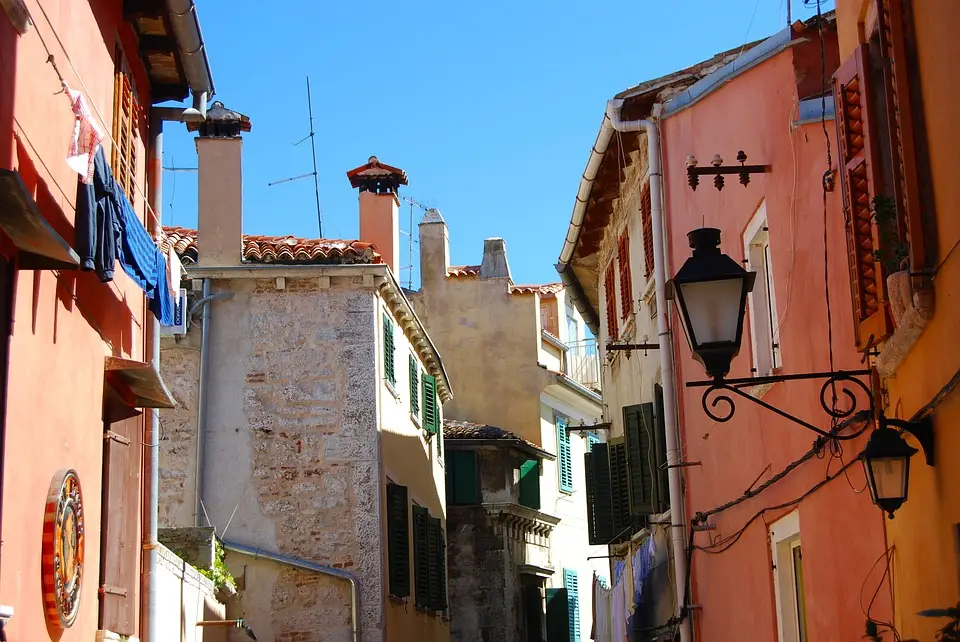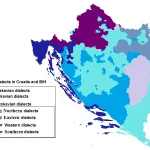First of all, foreigners are able to buy property in Croatia, with more and more of them snapping up real estate on the glorious Adriatic coast and using them as summer homes or indeed renting them out as a way to make back what is usually a heft investment. While this more than understandably bothers certain locals who have genuine fears about being outnumbered or priced out of where they come from, there is a healthy mix of foreign and domestic owned property up and down the coast and on the islands.
It isn’t a surprise that Croatia attracts so many foreigners (and their wallets), and while I’ve mentioned the natural pull of the sparkling coast, many foreign nationals also purchase apartments in Zagreb, quaint houses in the rolling hills of Gorski kotar, and even old cottages in far-flung villages. You don’t need to plan to move here at all in order to making purchasing Croatian property a reality and owning a little piece of this country, but you do need to keep the rules and some restrictions in mind before taking the plunge.
Croatian nationals
If you’re a member of the Croatian diaspora, either living here or living abroad with zero intentions of packing your life into a few suitcases and moving here, and you have Croatian citizenship, you are of course treated exactly like anyone else who has the same document and has been born, raised, and is living in Croatia. There are no restrictions on what you can purchase or where, and you don’t need to seek any special permissions from anyone when it comes to purchasing Croatian property.
EEA/EU citizens
As an EEA citizen, you’re treated in the same way as a Croatian national would be. You’re free when it comes to purchasing Croatian property whether you live here or not. There is one catch, however, as EEA citizens cannot purchase anything listed as agricultural land, this is set out in the Law on Agricultural Land.
What does that mean?
No foreign nationals can purchase agricultural land at this moment in time. This will expire in the future, with the date being pinned down at this moment in time as June 2023. This is currently the case (and has been ever since Croatia joined the EU) as part of a seven-year transitional period in which Croatia chose to maintain its restrictions on the sale of anything classed as agricultural land to foreign nationals.
Until then, foreigners can purchase land listed as agricultural land if they open a Croatian company, list themselves as the owners, and purchase it through their Croatian company.
Third country nationals and British citizens
When it comes to purchasing Croatian property as a third country national, you’ve got more of a task on your hands. You’ll need to inform the Ministry of Justice and seek their consent before any property sale can go through. Be prepared to wait, it can take months.
Once you do own a property, you can’t rent it out unless you open a Croatian company and do it through the company. This is costly and is absolutely not worth the hassle, time and potential problems you’ll likely run into.
The same rules apply to you in regard to the Law on Agricultural Land in that you cannot purchase it. You can’t purchase forested land, or any property considered to be a cultural monument.
British nationals
‘Can Brits purchase Croatian property?’ is a question that I see often, and the answers provided are somewhat vague. Given that the United Kingdom is no longer an EU member state, British citizens are no longer EU citizens, meaning that certain rights which were once afforded to them merely by being the holders of British passports no longer apply.
Up until February the 1st, 2020, ironically just before the coronavirus pandemic reached Europe and caused havoc like we’ve never seen before, Brits could purchase property in Croatia as they were EU citizens. The same continued to be true between that aforementioned date and the 31st of December, 2020, during a transition period when all EU law continued to apply to the UK as it slowly made its way out of the bloc of which it had been a leading, powerful and wealthy member for over 40 years.
During the UK’s transition period out of the EU, British (and as such EU) nationals were free to purchase Croatian property without having to get any particular permissions and without having to engage in anything out of the ordinary. This applied to all property with the exception of what was classed as ‘property and real estate in protected areas’ and agricultural land. Then came January the 1st, 2021, and everything changed for Britain. That was the real D-Day, when the UK ceased to be a member of any kind of the EU, the transition period ended at midnight (Central European Time) on the 31st of December, 2020.
The answer to the question: Can Brits purchase Croatian property? was expected to change, but it didn’t alter all that much. In short, yes they can, but that desired property absolutely needs to be classed as a residential property, and for that it must be in a certain ‘zone’. This is all based on reciprocity agreements held between the Republic of Croatia and various other countries, and this functions in the British sense much like it did before Croatia joined the EU back in July 2013.
A tip for looking this sort of agreement up in Croatian would be to Google: Uzajamnost za stjecanje prava vlasništva na nekretninama u Republici Hrvatskoj.
It sounds a little bit complicated, but in reality it isn’t. If a Croatian citizen can buy property in a certain country, then the citizens of whatever country that might be can typically do the same in Croatia, with certain conditions attached in each specific case. You also do not need to register as a resident of Croatia in order to buy a property here, as I mentioned at the beginning of this chapter.
So, what needs to be done?
Consent for the acquisition of ownership rights over Croatian property by foreign citizens who aren’t nationals of the EU/EEA requires what everyone in Croatia just adores – an administrative procedure. A Brit intending to buy a property here must first make a request to the Ministry of Justice.
In the case of a British citizen who isn’t protected by the Withdrawal Agreement wanting to purchase a property here, this procedure is conducted at their request to purchase real estate. That real estate needs to be ‘zoned’ as residential.
The procedure is laid down in the provisions of the Act on Ownership and Other Real Rights and the Act on General Administrative Procedure. A mouthful, I know. Any submitted application must be written and then be submitted to the Registry and Archives Department. This can be done by post to the following address:
Croatian: Ministarstvo pravosuđa i uprave Republike Hrvatske,
Uprava za građansko, trgovačko i upravno pravo
Ulica grada Vukovara 49, 10000, Zagreb, Grad Zagreb, Republika Hrvatska
English: The Ministry of Justice and Public Administration of the Republic of Croatia,
The Directorate for Civil, Commercial and Administrative Law
City of Vukovar Street 49, 10000, Zagreb, Croatia
The following documents must be enclosed along with your (written) application form:
An acceptable legal basis for the acquisition of ownership (this can be a property purchase agreement, the deeds proving the property has been gifted to you, etc). These documents can be in their original form, or they can be certified copies.
Proof of ownership from the seller of the property, such as a copy from the land register confirming their ownership.
A certificate of the administrative body responsible for urban and physical planning, according to the location of the property, on the legal status of the property.
Proof of the prospective owner’s nationality (such as a certified copy of their passport showcasing their citizenship) or proof of legal entity status (evidence with a copy from the court register) if the prospective owner is a foreign legal entity.
When the applicant is represented by an attorney-in-fact, the original power of attorney or a certified copy thereof must be submitted.
In certain cases, additional documentation will be sought from would-be buyers of Croatian property. It all depends on the individual request.
So, in short, the answer to Can Brits purchase Croatian property? is a resounding yes, given that all of the requirements for reciprocity have long been met. This was of course helped not only by the UK’s recent EU membership, but also by the fact that Croatia is the EU’s youngest member state and that many bilateral agreements between the UK and Croatia before Croatian EU accession were long-standing and clear.
Check the property records
This is a very important step that needs to be taken when purchasing Croatian property. There are many properties in Croatia which are the subjects of ownership disputes and these can go on for donkey’s years, as they say in the UK. Doing your due diligence can help you avoid any unpleasant surprises as you go through the purchase process. You really, really don’t want to deal with any Croatian institution for longer than is absolutely necessary and the biggest wet blanket in the world would come in the form of inheriting a list of problems as long as your arm while trying to enjoy your new little slice of Croatia.
How do I check the public records for a property?
There are two ways to do this. One is by checking the Land Registry, or through Cadastre.
The information that you can access through these platforms are the purpose of the property you’ve got your eye (and maybe your wallet) on, the name(s) of the owners and certain pieces of information about them, such as their OIBs (although this isn’t always shown), where they live (or at least their registered addresses), the size of the property and any accompanying land, and if there are any ownership disputes or other problems going on.
Make sure your desired property is zoned as residential!
When purchasing Croatian property, you need to make sure your desired property is zoned as residential, and unfortunately this information isn’t freely available with a few clicks online. To find out how any particular property is zoned, you need to send a request to the Administrative Department for Construction and Physical Planning (Upravni odjel za graditeljstvo i prostorno uređenje).
If you are not a Croatian citizen, you’ll need to pay a small fee for this and you need to request a certificate stating the property’s zone as residential.
Things to note
Engage a lawyer when purchasing Croatian property. I cannot stress this enough. Don’t try to navigate these (sometimes, alright, often) murky waters without professional legal assistance.
Have your wits about you. If something seems too good to be true, it probably is. If your gut is telling you something doesn’t seem quite right, it probably isn’t. Ask, ask, and ask again. Then ask your lawyer three more times.
When it comes to purchasing contracts, it will usually be your lawyer (as the buyer) who prepares everything. Everything, including the terms of the purchase, will be very clearly outlined in order to protect you and your hard earned cash. You’ll need to visit a notary (javni bilježnik) to have copies of the contract notarised.
Your lawyer will explain all of the fees to you as you go through the process, as there are several that act as guarantees for both parties, as well as how to obtain the certificate of ownership at the end of the process.
For more on How to Croatia, make sure to check out our lifestyle section.












